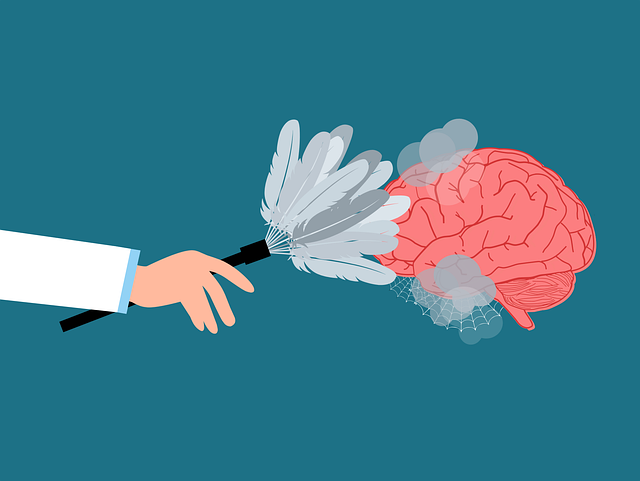In Castle Rock, with a growing Mandarin Chinese-speaking population, addressing unique mental health needs is vital. Community Outreach Programs tailored for this demographic offer essential support and education through culturally sensitive self-care practices, workshops, and open dialogues about mental health. These programs, designed with a focus on cultural sensitivity, cater to diverse needs, ensuring effectiveness and safety via comprehensive risk assessment. Strong partnerships with local institutions facilitate tailored initiatives, fostering open dialogue and enhancing overall well-being. Measuring success through clear goals and quantifiable metrics ensures continuous improvement, enriching the lives of Castle Rock's Mandarin Chinese-speaking community.
Castle Rock, a vibrant community, thrives on connectedness and inclusive initiatives. This article explores the strategic implementation of community outreach programs, focusing on the unique aspect of Castle Rock Mandarin Chinese Speaking Therapy. We delve into the importance of such programs in fostering cultural exchange and language skills. Through effective design, partnership building, and measurement, this initiative becomes a game-changer, enhancing the community’s tapestry and revolutionizing access to therapy. Discover how these strategies can transform local outreach efforts.
- Understanding the Need for Community Outreach Programs in Castle Rock
- Designing Effective Mandarin Chinese Speaking Therapy Sessions
- Building Partnerships and Engaging the Community
- Measuring Success and Continuous Improvement Strategies
Understanding the Need for Community Outreach Programs in Castle Rock

In Castle Rock, recognizing the unique needs and cultural diversity of its residents is paramount. The community, with a growing population of Mandarin Chinese speaking individuals, has specific requirements when it comes to mental health services. Implementing Community Outreach Programs addresses this gap by offering tailored support and education. By providing accessible resources, these programs aim to enhance mental well-being and foster a sense of belonging among all citizens.
Focusing on the Mandarin Chinese community allows for the introduction of culturally sensitive Self-Care Practices and Confidence Boosting initiatives. Moreover, regular workshops and sessions can facilitate open dialogues about mental health, dispelling stigma and promoting early intervention. A comprehensive Risk Assessment for Mental Health Professionals is also crucial to ensure these programs are effective and safe, catering to diverse cultural and individual needs within Castle Rock.
Designing Effective Mandarin Chinese Speaking Therapy Sessions

Designing effective Castle Rock Mandarin Chinese speaking therapy sessions requires a nuanced approach that understands cultural nuances and incorporates tailored strategies. By recognizing the unique needs and communication styles of Mandarin-speaking individuals, therapists can create a safe and supportive environment conducive to healing. This involves using culturally sensitive techniques, incorporating familiar resources like community connections and traditional practices, and offering flexible formats to accommodate varying levels of comfort with spoken language.
Furthermore, integrating evidence-based practices such as depression prevention, stress management, and trauma support services within these sessions can significantly enhance their impact. Therapists skilled in Mandarin Chinese can adapt coping mechanisms and mindfulness techniques to be accessible and meaningful for participants, fostering deeper engagement and promoting long-term well-being.
Building Partnerships and Engaging the Community

Building strong partnerships is a cornerstone of successful community outreach programs, especially when focusing on unique needs like those offered by Castle Rock Mandarin Chinese Speaking Therapy. By collaborating with local schools, community centers, and cultural organizations, this initiative can expand its reach and better serve the diverse population it aims to support. Engaging the community through these partnerships allows for tailored programs that address specific challenges, such as promoting Mental Health Awareness and fostering Self-Care Practices among individuals who may face language barriers or cultural differences.
Through joint efforts, these partnerships can organize workshops, seminars, and social events that encourage open dialogue and learning opportunities. This engagement extends to providing platforms for sharing best practices in therapy and mental health support, enhancing the overall well-being of the community. By incorporating Social Skills Training tailored to the Mandarin-speaking population, Castle Rock Mandarin Chinese Speaking Therapy can contribute to a more inclusive and connected neighborhood.
Measuring Success and Continuous Improvement Strategies

Measuring success is a critical aspect of community outreach programs like Castle Rock Mandarin Chinese Speaking Therapy. It involves setting clear goals and using quantifiable metrics to track progress. By assessing program outcomes, such as participant engagement, language proficiency improvements, and changes in mental health, organizers can identify what’s working well and areas needing enhancement. This data-driven approach ensures that efforts align with the community’s needs and lead to meaningful impact.
Continuous improvement strategies are integral to the long-term success of outreach programs. Incorporating Empathy Building Strategies and Mental Illness Stigma Reduction Efforts can foster a more inclusive environment, encouraging open conversations about mental health. Encouraging positive thinking and promoting cultural understanding through language education helps build stronger connections within the community. Regularly reviewing and adapting program methodologies based on feedback and outcomes ensures that initiatives remain relevant and effective, ultimately enriching the lives of those they serve.
Implementing community outreach programs, such as Castle Rock Mandarin Chinese Speaking Therapy, involves a multifaceted approach. By understanding local needs, designing engaging therapy sessions, building strategic partnerships, and continuously measuring success, initiatives like these can foster inclusive growth. This holistic strategy ensures that programs like Castle Rock Mandarin Chinese Speaking Therapy not only improve language skills but also enhance community connections and overall well-being.














